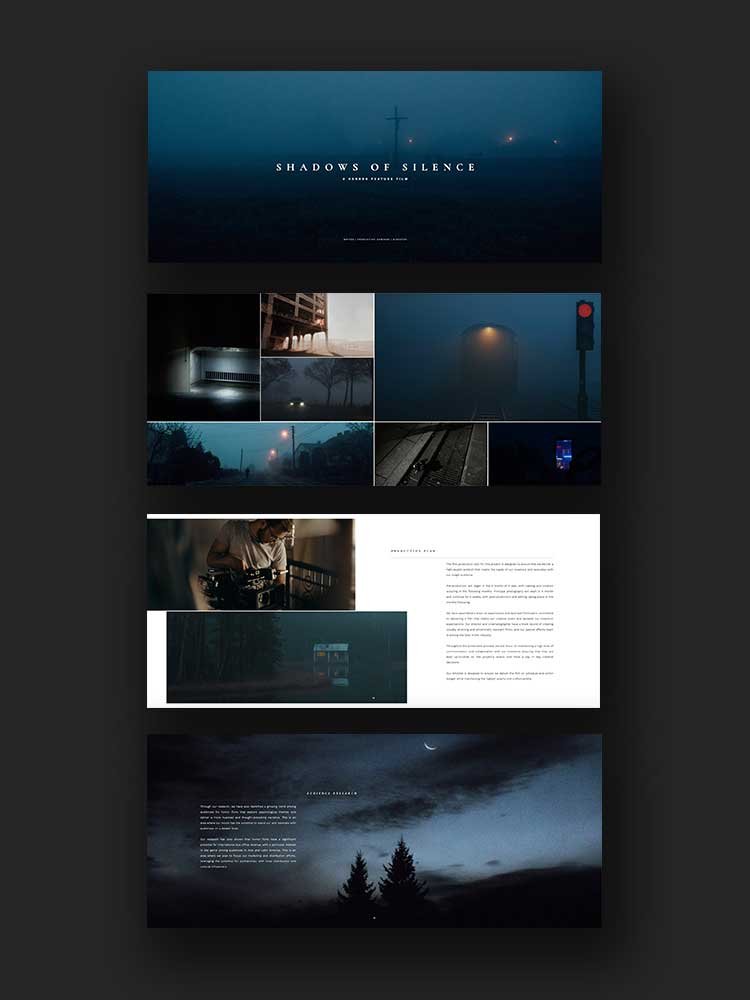How To Pitch A Movie Idea: A Comprehensive Guide for Aspiring Filmmakers
In the competitive world of Hollywood and the film industry, learning how to pitch a movie idea is an essential skill for aspiring screenwriters. It's no secret that a great movie begins with a compelling story, but to get your film idea in front of decision-makers, you need to know the art of the movie pitch.
In this blog post, I will explore the ins and outs of pitching a movie idea, from crafting a compelling pitch to building relationships within the industry. Along the way, I'll discuss helpful tips, tricks, and insights from seasoned Hollywood producers and industry insiders.
So, without further ado, let's dive into the world of movie pitches!
Understanding the Movie Pitch
Before diving into crafting a captivating movie pitch, it's essential to understand what a movie pitch process is and why it's crucial for success in the film industry.
What is a movie pitch?
A movie pitch is a brief presentation of your movie idea designed to entice producers, studio executives, and other decision-makers in the film industry.
The pitch should convey your story's plot, genre, main characters, and unique elements.
Movie pitches can take various forms, such as elevator pitches (a quick, 30-second summary), pitch decks (visual aids that provide an overview of your story idea), and standard pitches (a more comprehensive 5-10 minute presentation).
Why is a movie pitch important?
A well-crafted movie pitch can be the key to securing financing, production support, and ultimately making your film.
It's an opportunity to showcase your creativity, storytelling abilities, and passion for your project.
A captivating movie pitch in a highly competitive industry can help set your idea apart from countless others vying for attention.
How To Craft Your Movie Idea?
Before pitching your movie idea, you must understand your story, characters, and plot. Here are some tips for developing a movie idea that will capture the imagination of your audience.
Find inspiration
Look for inspiration from other films, books, true stories, or fictional concepts. Consider using a "this meets that" approach, combining elements from two existing ideas to create something fresh and unique.
Develop your plot
Outline your story using a traditional three-act structure or experiment with alternative storytelling methods. Identify your plot points and ensure your story has a clear beginning, middle, and end.
Create compelling characters
Develop well-rounded, relatable main characters that will engage your audience. Give your characters distinct voices, motivations, and arcs to create emotional connections with your audience.
Determine your film's genre.
Choose a film genre that aligns with your story and the intended audience. Remember that genre can impact your pitch's tone and the expectations of potential producers.
How to Develop a Compelling Pitch?
Now that you have a solid movie idea, it's time to craft a great pitch that will captivate industry decision-makers. Here are some tips for pitch development to make your movie idea stand out.
Create a high-concept pitch.
A high-concept pitch is a simple, easily digestible idea that can be conveyed in just a few words or sentences. This pitch type often has broad appeal and unique elements that make it stand out.
High-concept pitches are attractive to Hollywood producers and studio executives because they're easy to market and often have the potential for commercial success.
Focus on the unique elements of your story.
Emphasize what sets your movie idea apart from others in the same genre or those with similar plotlines.
Highlight any unique visual aspects, plot twists, or character traits that will make your story memorable and distinctive.
Be concise and clear.
Keep your pitch short and to the point, focusing on the most important aspects of your story. Avoid unnecessary details or tangents that may distract or confuse your audience.
Develop a strong logline.
A logline is a one-sentence summary of your film that captures the essence of your story and its unique elements.
Crafting a compelling logline can help you convey your movie idea quickly and effectively in pitch meetings or written materials like cover letters and pitch decks.
Preparing for the Pitch Meeting
Once you've crafted your pitch, it's time to prepare for the pitch meeting. Here are some tips to make a great impression on decision-makers in the film industry.
Practice, practice, practice
Rehearse your pitch multiple times to ensure you can deliver it smoothly and confidently. Consider practicing in front of a mirror or with a trusted friend or mentor who can provide honest feedback.
Prepare visual aids
If appropriate, create pitch decks, mood boards, or other visual aids that can help illustrate your movie idea and enhance your presentation. Ensure your visuals are professional and polished and convey your story effectively.
Anticipate questions
Be prepared to answer questions about your story, characters, and intended audience. Ensure you have a firm grasp on all aspects of your movie idea so you can confidently address any inquiries.
Build relationships
Networking is crucial in the entertainment industry. Attend industry events, conferences, and workshops to meet other professionals and expand your network.
Building relationships with producers, studio executives, and other decision-makers can increase your chances of success when pitching your movie idea.
Navigating the Entertainment Industry
Understanding the ins and outs of the film industry is crucial for aspiring screenwriters who want to pitch their movie ideas successfully. Here are some tips for navigating the often complex world of Hollywood and the entertainment industry.
Know your audience
Research the preferences and interests of the producers or studio executives you'll pitch to. Tailor your pitch to their specific tastes and sensibilities.
Understand the pitching process.
Familiarize yourself with industry norms and expectations when pitching movie ideas. This includes knowing what materials to prepare, how long your pitch should be, and how to follow up after a pitch meeting.
Be aware of legal considerations.
Remember that many production companies and studio executives will not accept unsolicited pitches.
To protect your intellectual property, consider registering your screenplay or treatment with the Writers Guild of America or obtaining a copyright.
Pitching at Film Festivals and Writing Competitions
Film festivals and writing competitions can provide aspiring screenwriters valuable exposure and networking opportunities. Here are some tips for making the most of these events when pitching your movie idea.
Research opportunities
Look for film festivals, pitch fests, and writing competitions that cater to your film's genre or focus on showcasing new talent. Research submission deadlines, requirements, and entry fees to ensure you're prepared and can submit your work on time.
Prepare your materials
In addition to your pitch, make sure to have a polished screenplay, treatment, or other supporting materials ready to submit if required. Some competitions or events may have specific formatting or content requirements, so review the guidelines carefully.
Network at events
Attend industry panels, workshops, and social events at film festivals and competitions to meet like-minded professionals and expand your network. Be prepared to deliver an elevator pitch at any moment, as you never know who you might encounter at these events.
Learn from feedback
Use feedback from judges, fellow screenwriters, or industry professionals to improve your pitch and screenplay. Constructive criticism can help refine your work and increase your chances of success in future pitching opportunities.
Closing Thoughts
Learning how to pitch a movie idea is essential for any aspiring filmmaker. By crafting a compelling story, developing a captivating pitch, and mastering the art of the pitch meeting, you can increase your chances of success in the competitive film industry.
Remember, persistence is key. It's not uncommon for filmmakers to face rejection or encounter obstacles.
By remaining dedicated to your craft and refining your pitch, you can ultimately achieve your dream of seeing your movie idea come to life on the big screen.
Now that you're armed with the knowledge and tools needed to pitch a movie idea, go forth and captivate the hearts and minds of producers, studio executives, and film industry decision-makers.
Good luck on your journey to cinematic success!
Frequently Asked Questions About Pitching Movie Ideas (FAQs)
How long should my movie pitch be?
The length of your movie pitch can vary depending on the format and context. Elevator pitches should be around 30 seconds, while standard pitches can range from 5 to 10 minutes.
The key is to be concise and focus on your story's most essential and compelling aspects.
What should I include in my movie pitch?
Your movie pitch should include the following elements:
A captivating logline or high-concept idea
A brief overview of the plot and story structure
An introduction to the main characters and their motivations
The film's genre and intended audience
Unique aspects or selling points of your story
Any relevant visual aids, if appropriate
How can I make my movie pitch stand out?
To make your movie pitch stand out, focus on the unique elements of your story, create a high-concept pitch that can be easily understood and remembered, and convey your passion and enthusiasm for your project.
Be prepared, confident, and engaging when delivering your pitch.
How do I prepare for a pitch meeting?
To prepare for a pitch meeting, practice your pitch multiple times to ensure smooth and confident delivery, create necessary visual aids or supporting materials, research your audience, and anticipate potential questions about your story or project.
Additionally, try to build relationships within the industry to increase your chances of success.
How do I protect my movie idea when pitching?
To protect your movie idea, consider registering your screenplay or treatment with the Writers Guild of America or obtaining a copyright.
Be aware that many production companies and studio executives will not accept unsolicited pitches, so always follow industry guidelines and best practices when submitting your work.
Can I pitch my movie idea at film festivals and writing competitions?
Film festivals, pitch fests, and writing competitions can provide aspiring screenwriters valuable exposure and networking opportunities.
Research events that align with your film's genre or focus on showcasing new talent, and be prepared with a polished screenplay, treatment, or other supporting materials as required by the event guidelines.
What should I do if my movie pitch is rejected?
Rejection is a common experience for screenwriters in the film industry. If your movie pitch is rejected, use any feedback or constructive criticism to refine your film pitch and screenplay.
Practice your pitch, network within the industry, and submit your work to other opportunities. Persistence and dedication are crucial to success in the competitive film world.
What are some common mistakes to avoid when pitching a movie idea?
Some common mistakes to avoid when pitching a movie idea include the following:
Being too vague or overly detailed in your pitch
Failing to convey the unique elements of your story
Neglecting to practice your pitch or prepare for potential questions
Overloading your pitch with industry jargon or buzzwords
Focusing too much on your personal story or experiences rather than the movie idea itself
Ignoring the preferences and interests of the decision-makers you're pitching to
Is it essential to have a completed screenplay before pitching a movie idea?
While having a completed screenplay before pitching a movie idea is not always required, it can be advantageous.
A polished script demonstrates your commitment to the film project and showcases your writing abilities.
Additionally, some film festivals, writing competitions, and industry professionals may require a completed screenplay as part of the submission or pitching process.
How can I improve my chances of success when pitching a movie idea?
To improve your chances of success when pitching a movie idea, consider the following tips:
Continuously refine your pitch and screenplay based on feedback and self-assessment
Network with industry professionals and decision-makers to expand your connections
Attend industry events, workshops, and conferences to stay informed and make new contacts
Research and target opportunities that align with your film's genre and intended audience
Remain persistent and dedicated to your craft, even in the face of rejection or setbacks
How important is the genre when pitching a movie idea?
The genre is crucial to your movie pitch, as it helps define your film's overall tone, style, and audience.
Communicating the genre of your movie idea helps decision-makers understand your project and determine if it aligns with their interests and production goals.
Ensure you emphasize the genre and any sub-genres in your pitch to provide a clear picture of your film's identity.
How do I know which production companies or studio executives to pitch my movie idea to?
Research is vital when determining which production companies or studio executives to pitch your movie idea.
Look for companies and individuals with a history of producing films in your genre or expressing interest in similar projects.
Tailoring your pitch to the preferences and sensibilities of the decision-makers you're targeting can improve your chances of success.





































